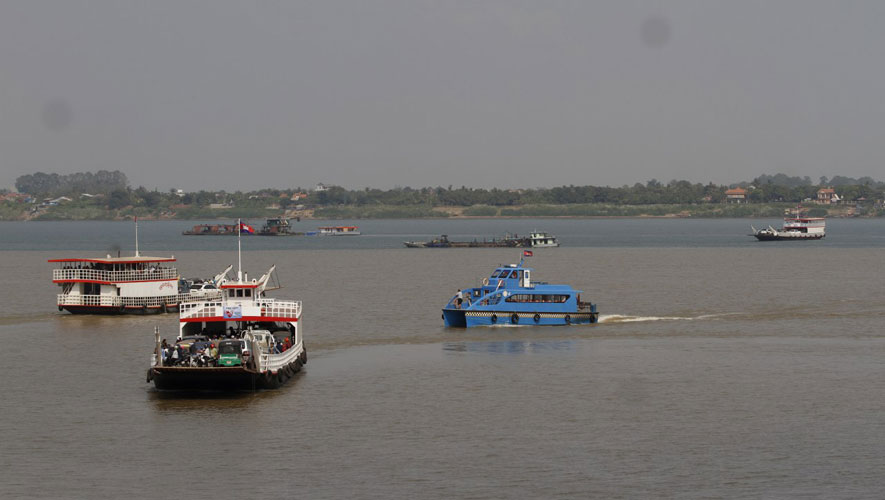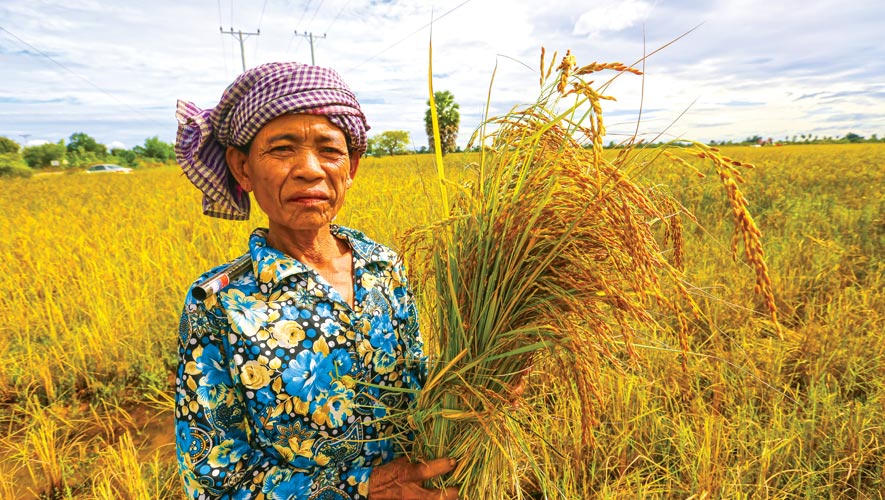Drops follow ban on online and arcade gambling but experts predict a comeback through tourism
For the latest Cambodian Business news, visit Khmer Times Business
Sihanoukville land’s price and property rents have dropped up to 30 percent after the government issued a directive banning all online and arcade gambling in the Kingdom in a bid to safeguard security and public order.
However, real estate industry insiders believe it is a short-term effect and are calling on the government to think long-term and develop a quality infrastructure to support the health of the tourism market.
Prime Minister Hun Sen issued the gambling directive in August.
As he signed the directive he noted that some licensed online gambling operations rigged their games and threatened those who were not able to repay their gambling debt.
“Some foreigners have used this form of gambling to cheat victims inside and outside the country,” Mr Hun Sen wrote.
“The Royal Government has decided to stop issuing licences for such operations within and from outside the Kingdom with immediate effect,” he continued.
The directive said that permitted online gambling sites and gaming operators would be allowed to continue operations until their licences expire, following which the Finance Ministry would not renew them.
The report from the Council for the Development of Cambodia, shows that investment has spread from Phnom Penh to other provinces throughout the country, especially Kandal, Kampong Speu, Sihanoukville, Svay Rieng and Takeo.
Sihanoukville has experienced strong growth in the real estate sector in recent years as Chinese investors began to dominate the coastal area in the real estate sector.
From January to September this year, five-storey buildings have 125 units.
They include mixed-use buildings, commercial buildings and development projects in all parts of Sihanoukville, according to a report from the Ministry of Land Management, Urban Planning and Construction.
The report says that most of those projects are worth hundreds of millions of dollars and include condos, apartments, hotels, resorts, resorts and casinos.
Sihanoukville land prices in the two months before the ban, land for development measuring 2,000 square metres (sqm) and above on a beach location cost between $800 and $1,200 per sqm, while land in the city centre was priced at $1,200 to $1,300 per sqm. However, after the ban, it is estimated these prices have dropped from 10 percent to 30 percent, according to the report from CBRE, a commercial real estate services and investment firm.
Regional Operating Principal Keller Williams Cambodia and Chief Executive Officer of Khmer Real Estate Kim Heang say that the real estate sector in Cambodia may be in decline, particularly in Sihanoukville, and there will be further problems relating to the banning of all online and arcade gambling in the Kingdom.
Kim adds that Cambodia’s economic growth depends on real estate and construction, services, the tourism and industry sectors and agriculture. These four sectors are the pillars of the Cambodian economy. Therefore, if one among the four sectors is weak, it will drive the other sectors down with it.
Kim says the property boom mostly happened in Phnom Penh, Preah Sihanouk, Svay Rieng (Bavet) and Banteay Meacheny (Poipet).
He adds that not only will it affect Sihnaoukville but it would also hit Phnom Penh, Bavet and Poipet.
“To see the full impact, please wait and see what happens over the next three months,” Kim says. “I used to suggest the government should not issue new licences because we have more than 100.”
However, for those who have existing licenses for an appropriate place, and if they pay taxes to the government, the sanction should be delayed for another year, Kim adds.
He points out that the government claims that it collects very little revenues from online gaming. Instead, the value goes to the real estate sector. He adds that for now buildings for rent at $20,000 per month in Sihanoukville have no tenants or are forced to drop it around 50 percent. On top of that, land prices that were $500 per sqm have now fallen to only $150 per sqm – and have no buyers no buyers.
James Hodge, director of the Advisory and Transaction Services at CBRE Cambodia, an affiliate of CBRE, acknowledged a softening of prices in Sihanoukville.
He adds that it is a little early to see too much change, but certainly there is more interest in selling than there was previously with a range of different properties and land – and at slightly reduced prices. It has not moved a lot yet. It’s just marginal changes,” he maintains.
However, he says the interest has certainly shifted in terms of where it is coming from. “We would expect that trend to continue and deepen because of the changes in the law. Before there was a lot of interest in the province in the centre of the city and along the coast for casino and resort developments, whereas now there’s a shift away from that and a move towards normal tourism and more diversified business models.”
Hodge says there were pros and cons in online gaming, which created a lot of investment, a lot of development in the province. On the negative side, the impact would be short-lived and other businesses would move in, affecting prices.
He says that it should help enhance the environment and support a regular tourism industry, which would be a great way to growing Sihanoukville for the future and provide a higher quality environment for local people and international visitors.
“This ban will have quite a short-term impact. Looking at the longer term, for example… the government has injected more capital to help the infrastructure recover and there is better planning, so we are expecting to see more investment, better quality of investment, both commercial and tourism, rather than just online gaming,” he adds.
Speaking at Cambodia’s Phnom Penh Market View 2019 in the third quarter of the year, Desmond Sim, head of research at South East Asia CBRE, said there are definitely positive aspects from a social point of view because although online gaming added workers but it is something that is frowned upon socially, especially if it is not controlled, and with online gaming there is even more control needed than in many other sectors.
“I think the best way forward is if you want to introduce a gaming market is to re-look at licensing so spending can be directed not only to gaming but also to retail and the hospitality market – and that is basically a plus for the real estate market,” Sim points out.
“However, I think socially it is a positive move because it prevents errant gamblers. You can’t track online gaming whereas you can actually put more control on offline gambling. When you go online nobody knows people are gamblers because it is private,” Sim adds.
He says that the impact will be very short term, but it is better for the government to think about the long-term, by having a quality infrastructure to support the health of the tourism market.
During a meeting with a visiting group of Chinese entrepreneurs on Oct 8, Prime Minister Hun Sen, said that Cambodia adheres to a free-market policy and the Kingdom’s economic foundation does not depend solely on revenues from online or casino gaming.
He added that Cambodia collected very little income tax from online casinos, which tended to attract crime and money laundering.
“Cambodia’s economy is dependent on many factors for its economic foundations so it has to strengthen the law in order to attract investment in other sectors,” the prime minister said.
According to the Council for the Development of Cambodia from 2016 to August 2019, investment from China in coastal provinces such as Koh Kong, Sihanoukville and Kampot amounted to 2.6 billion dollars, representing 11.5 percent of the total investment in the country. However, Sihanoukville alone received about $2 billion, accounting for 8.9 percent of total investment.




